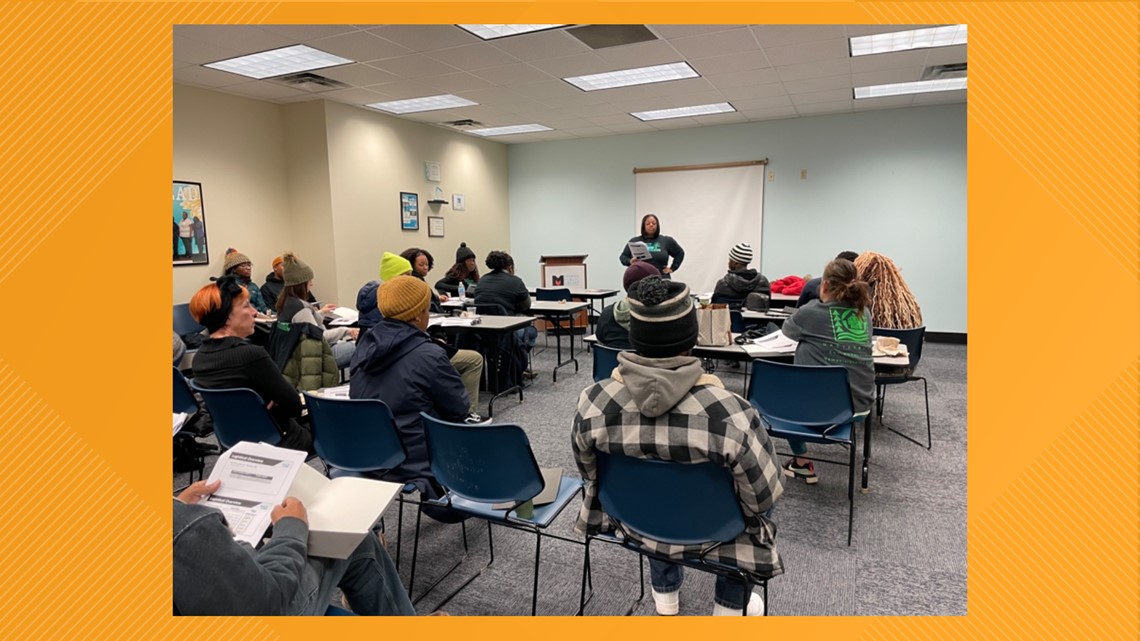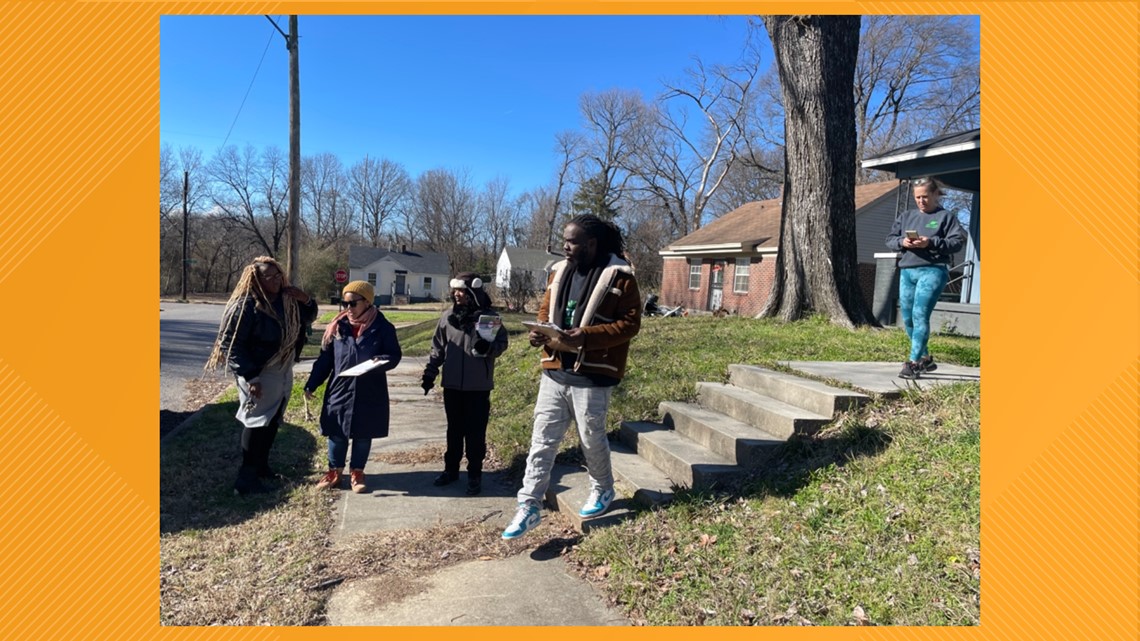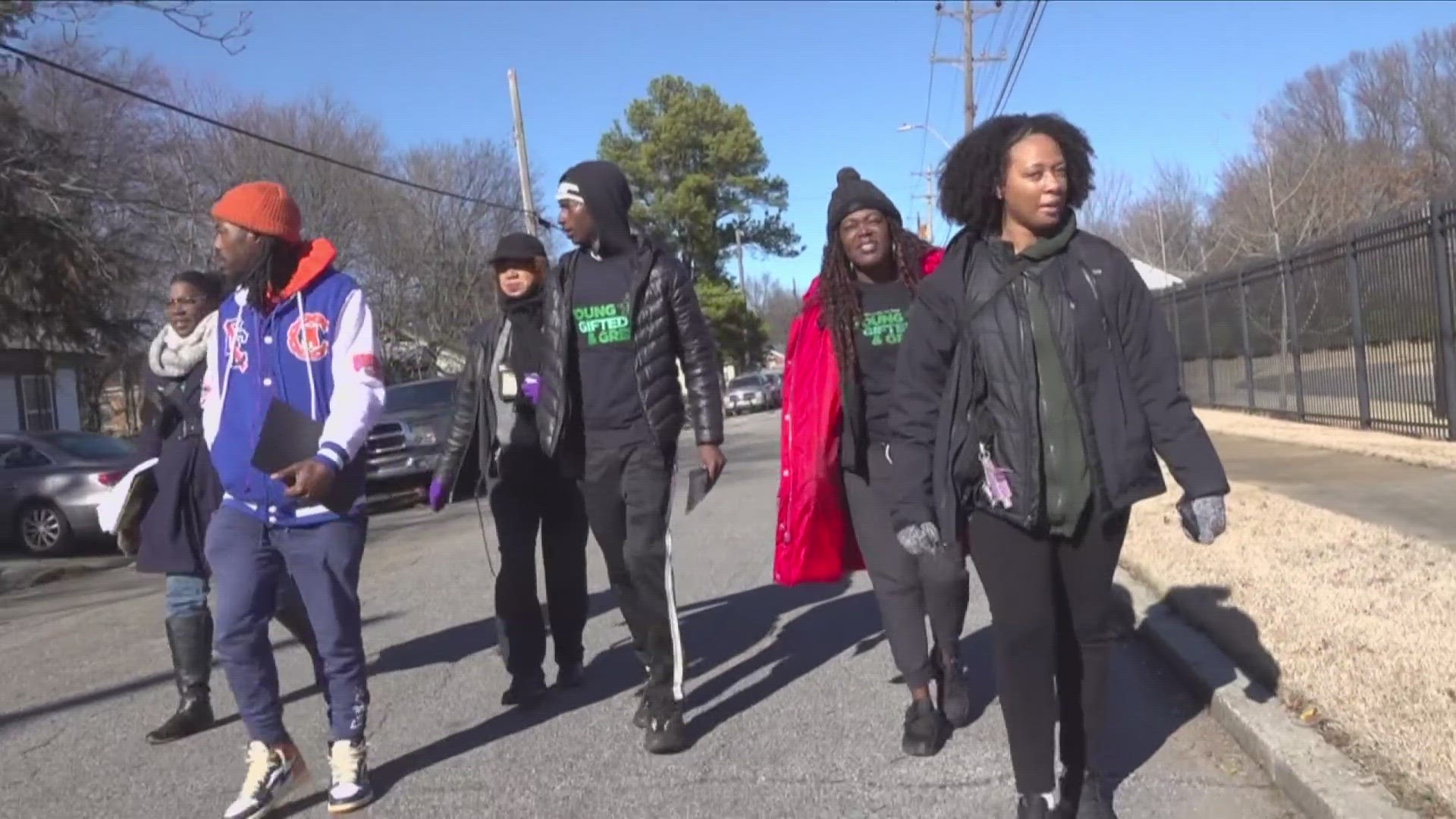Activists in South Memphis are saying that water being carried to residents through lead pipes remains a widespread problem — the extent of which is not fully known.
The EPA has set the maximum contaminant level goal for lead in drinking water at zero because "lead can be harmful to human health even at low exposure levels." No safe level of lead has been identified in children.
Chronic exposure to lead has been linked to damage to the brain and nervous system, slowed growth and development as well as hearing and speech problems. Some research even links chronic lead poisoning to increased aggression and violence.
With activists saying the problem and consequences of inaction have been laid out by decades of research stark terms, these Memphians have been mobilizing.
On a cold but sunlit Saturday morning, the group Black Millennials for Flint brought together various stakeholders, community members and concerned citizens to help get the word out to residents who still have lead public service lines leading to their home.
These activists wanted the community to know about free testing and remediation through full service line replacement, which MLGW received money to carry out through the 2021 Infrastructure Investment and Jobs Act.
Latricea Adams is founder and president of "Black Millennials for Flint." She said she felt inspired by the turnout.
"To see so many people come out today and take the information they know about lead service lines and say 'Hey, I need to tell my fellow man — my community about it,' speaks volumes to just the dope culture that exists in the city of Memphis around truly being servant leaders.”


Their goal for the day was admittedly ambitious, knocking on 500 doors in the riverside community in the heart of south Memphis that have been identified through MLGW maps as having lead service lines. They aimed to start a conversation about what the problem is and how to fix it with no cost to the homeowner or renter.
Black Millenials for Flint wanted to get the word out about free water testing programs MLGW offers as well as lead paint testing which can also still be an issue in older homes. Most importantly, they said they wanted to discuss prevention.
“We already know there are lead service lines connected to these homes, so part of the education is talking about water filtering, for example” Ms. Adams said, adding that with cold temps come increased chances of boil water notices.
She said water with lead needs to be filtered before boiling as the evaporation during boiling may increase concentrations of lead.
“Memphis has the second highest number of lead exposed people in region four, which consists of eight states and eight tribes” Chet Kibble of the Lead Safe Collaborative said.
His group has been working with residents to test lead water levels in Memphis and Shelby county for the past 15 years.
“That’s the thing that we have to recognize — we have chronically exposed people,” he said.


As much as anything though, one of the main goals of the days work was data collection to fill in what Ms. Adams called "gaps in knowledge" about the full scope of the problem. The data MLGW has publicly released only shows if there are lead service lines leading up to the property — it does not show if the lines within the plumbing of the home still contain lead.
The group said this is why further testing is often needed especially for older homes. Ms. Adams said she believes MLGW could do a better job around promoting their programs and putting out a comprehensive plan for full removal.
"There have been requests for several years even before these federal mandates around lead service line replacement," Adams said.
She gives them credit for having an interactive online map where anyone can see which has houses have lead service lines but asks “where’s the community outreach?"
"We are doing this today for the sake we love community, but there has to be greater initiatives," she said.
She said that they would like to be partners in cleaning up lead in the South Memphis community because, ultimately, she said everyone "has the same goal."
“There has to be a lot of emotional labor in order to establish trust,” she said.
Adams also said this task is not just on MLGW but also “you have Memphis City Council, which has a role in what this looks like in order for them to do their job and do their job well, so that they are truly making this an equitable process for the most vulnerable community members”
Those who want to find out more about what the Black Millennials for Flint group are working on can click here.

